-
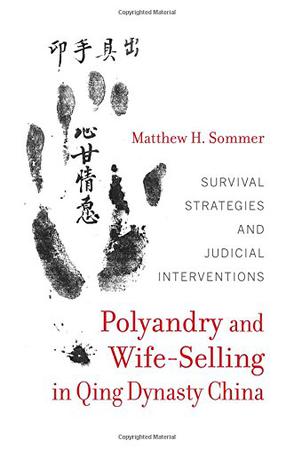
Polyandry and Wife-Selling in Qing Dynasty China
-
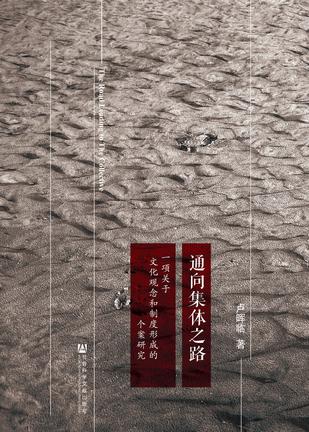
通向集体之路
本书以作者在安徽南部自然村——汪家村前后长达10年的田野调查为基础,讲述了一个集体制度(人民公社制度)如何形成的故事。作者认为,集体制度虽然由国家推动和组织,带有很大的强迫性,但是农民并不是完全被动的接受者,他们被裹挟到集体化的大潮中,同时,也以自己的方式、沿着符合自己利益的方向推波助澜,甚至在可能的范围内调整和改变了潮流的走向。 -
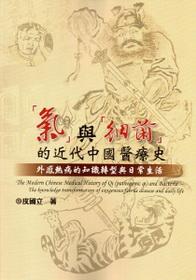
氣與細菌的近代中國醫療史
一般人得了SARS、流行性感冒或法定傳染病,您敢去看中醫嗎?那些兇狠、來無影去無蹤的細菌、病毒,中醫們有辦法處理嗎?這不免讓人感到懷疑:也許中醫可以處理頭疼腦熱,但中藥可以殺死細菌嗎?也許,讀過這本書後,對上面這些問題,您會有全新的思考與不同於過往的見解。 從醫學史出發,本書帶領您穿梭時空,進入距今將近百年前的中國社會,重現一段中醫抗菌的奮鬥史。在中西醫衝突、論戰的民國時期,中醫是如何回應西方細菌學的衝擊?他們在西醫的科學實驗和一步步佔據國家衛生主權的過程中,怎麼運用自身的外感熱病知識體系,來構築一套中醫式的傳染病學,並且在日常生活中找到中醫藥可以發揮的空間。 作者不盲從西方理論,從傳統文化中構思,創造從「重層醫史」的視角出發的新研究。先鋪陳出中西醫論爭的時代氛圍,並細心地關照了近代中醫在古典文獻、日常生活養生抗病、醫者志業和中西疾病觀的對話等各方面的史實,展現了全面的視角。受現代醫學影響,傳統中醫雖仍為民眾信任,但其實有很多論述與臨床技術其實是處在一種「準失傳」的狀態,多數中醫不去重視,民眾也不知道傳統中醫有何更強的能耐,更別奢望國家科研資源的大量挹注,這一切遂使傳統醫學的理論、生生之技的運用範圍,愈形窄化、順時流失,這是非常可惜的事情。 歷史學研究不能與現實生活脫節,作者透過醫史的研究,希望能喚醒中醫們對自身體系的認識與自信,並期待更多民眾與知識分子(包括現代西醫與科學家)瞭解中醫文化之價值,走出百年來「廢中醫」的陰影,揚棄刻板的印象,也為自己的實際治療與日常養生,提供另外一種思考的可能性。 英文書介: The Modern Chinese Medical History of Qi (pathogenic qi) and Bacteria-The knowledge transformation of exogenous febrile disease and daily life Does anyone infected with SARS, influenza or statutory infectious diseases dare to attend the clinic of Traditional Chinese Medicine (TCM)? Can Chinese medicine practitioners deal with those vicious and invisible bacteria and viruses? It is doubtful whether TCM can kill bacteria or viruses. Perhaps this book can provide you with a brand new direction of thinking which is different from the previous perspectives for the aforementioned questions. Based on the history of medicine, this book guides readers to explore and review the history of TCM’s fight against bacteria in Chinese society approximately a hundred years ago. In the era of Republic of China when the controversy between western medicine and TCM was intense, how could TCM respond to the impact of western bacteriology and use its own knowledge system of heat diseases to develop a TCM-based concept of infectious disease? The author intends to awaken Chinese medicine practitioners’ knowledge and confidence in their own systems by studying the history of medicine. Moreover, the author also hopes that more people and intellectuals (including modern western medicine practitioners and scientists) can understand the value of TCM, free themselves from the shadow of “useless TCM” for centuries, get rid of stereotypes and seek for a method to integrate various concepts, in order to provide themselves with another feasible technique and thinking in the aspects of disease treatment and daily health care. -
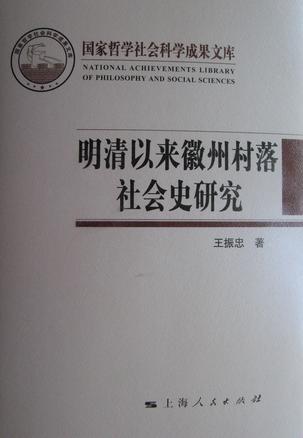
明清以来徽州村落社会史研究
本书利用近十数年来通过田野调查在民间收集到的珍稀文献,撰写的系列论文汇集而成,为徽州村落文书与村落社会史研究的专题论文集。作者力图透过村落文书所展示的基层社会之不同侧面,着眼于徽州社会文化史,特别是民众日常生活的研究。 -
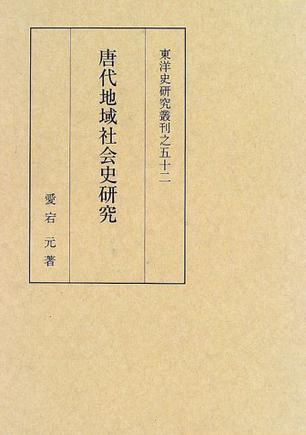
唐代地域社会史研究
-
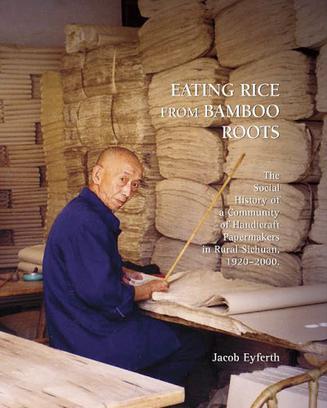
Eating Rice from Bamboo Roots
This book charts the vicissitudes of a rural community of papermakers in Sichuan. The process of transforming bamboo into paper involves production-related and social skills, as well as the everyday skills that allowed these papermakers to survive in an era of tumultuous change. The Chinese revolution - understood as a series of interconnected political, social, and technological transformations - was, Jacob Eyferth argues, as much about the redistribution of skill, knowledge, and technical control as it was about the redistribution of land and political power. The larger context for this study is the 'rural-urban divide': the institutional, social, and economic cleavages that separate rural people from urbanites. This book traces the changes in the distribution of knowledge that led to a massive transfer of technical control from villages to cities, from primary producers to managerial elites, and from women to men. It asks how a vision of rural people as unskilled has affected their place in the body politic and contributed to their disenfranchisement. By viewing skill as a contested resource, subject to distribution struggles, it addresses the issue of how revolution, state-making, and marketization have changed rural China.